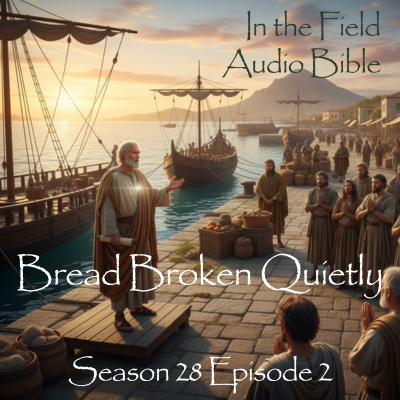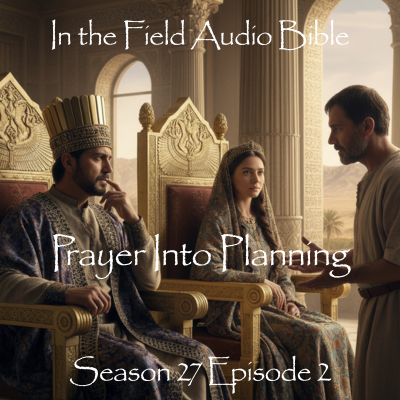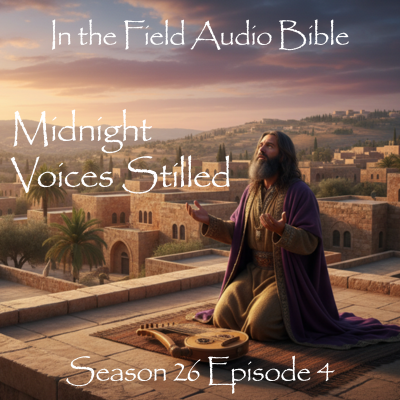Loyalty Beyond Borders: Ruth's Journey from Moab to Bethlehem

Take my hand to ancient Israel, where Ruth's story unfolds during the era of the judges, a time of spiritual confusion. Three widows face devastating loss: Naomi, bitter and empty; Orpah, choosing a sensible return; and Ruth, whose extraordinary declaration of loyalty beyond borders transforms everything.
This Moabite woman surrenders everything—identity, security, future—to follow Naomi and embrace Israel's God. Arriving at barley harvest, divine providence transforms emptiness into redemption. Ruth's faithful determination reminds us: endings become beginnings in God's hands.
Will bitterness define you, or will you choose covenant faithfulness? Discover how God writes redemption stories through the powerless, echoing through eternity.
Take my hand and walk with me to ancient Israel, where the dusty road between Moab and Bethlehem becomes the setting for one of Scripture's most profound stories of loyalty beyond borders, loss, and unexpected redemption.
The Book of Ruth opens during "the days when the judges ruled" – a time when spiritual confusion reigned and "everyone did what was right in their own eyes." Against this backdrop of moral relativism, the steadfast loyalty of a Moabite widow shines all the brighter, showing us what covenant faithfulness truly means.
We meet three women marked by devastating loss: Naomi, who left Bethlehem during famine only to lose her husband and both sons in Moab; Orpah, who makes the sensible choice to return to her people; and Ruth, whose extraordinary declaration of loyalty – "Where you go, I will go" – reverberates through generations. In a society where women derived their identity and security through male relatives, these widows face an uncertain future that will test their faith and resolve.
Ruth's decision to follow Naomi back to Bethlehem isn't just about family loyalty – it represents complete surrender of her identity, security, and future. She willingly embraces outsider status and probable poverty to remain faithful to her mother-in-law and to the God of Israel. This foreign woman's faithfulness becomes the foundation for a redemption story that extends far beyond her own life.
As they arrive in Bethlehem "at the beginning of the barley harvest," what seems like coincidental timing reveals divine providence at work. When Naomi renames herself "Mara" (bitter), declaring that "the Almighty has dealt bitterly with me," she cannot yet see how God is weaving hope through their circumstances. But Ruth's quiet determination reminds us that "empty isn't the same as finished" – that endings can become beginnings when placed in God's hands.
This timeless narrative invites us to examine our own responses to seasons of emptiness and loss. Will we allow bitterness to become our identity? Or will we, like Ruth, choose faithful loyalty even when it defies logical self-preservation? Join me in discovering how God works most powerfully through those who seem most powerless, writing redemption stories that echo through eternity.
What difficult choice are you facing today that might be the beginning of something beautiful beyond imagination?
Music Credit: "I Choose You" by AFTR



00:49 - Opening Song: Out of Anxiety
04:35 - Welcome to In the Field Audio Bible
05:49 - Introduction to Ruth's Story
09:54 - From Bethlehem to Moab
18:33 - Loss and the Journey Home
23:49 - Ruth's Loyal Choice
34:10 - The Return to Bethlehem
39:54 - Closing Reflections
44:15 - Premier Membership Invitation







